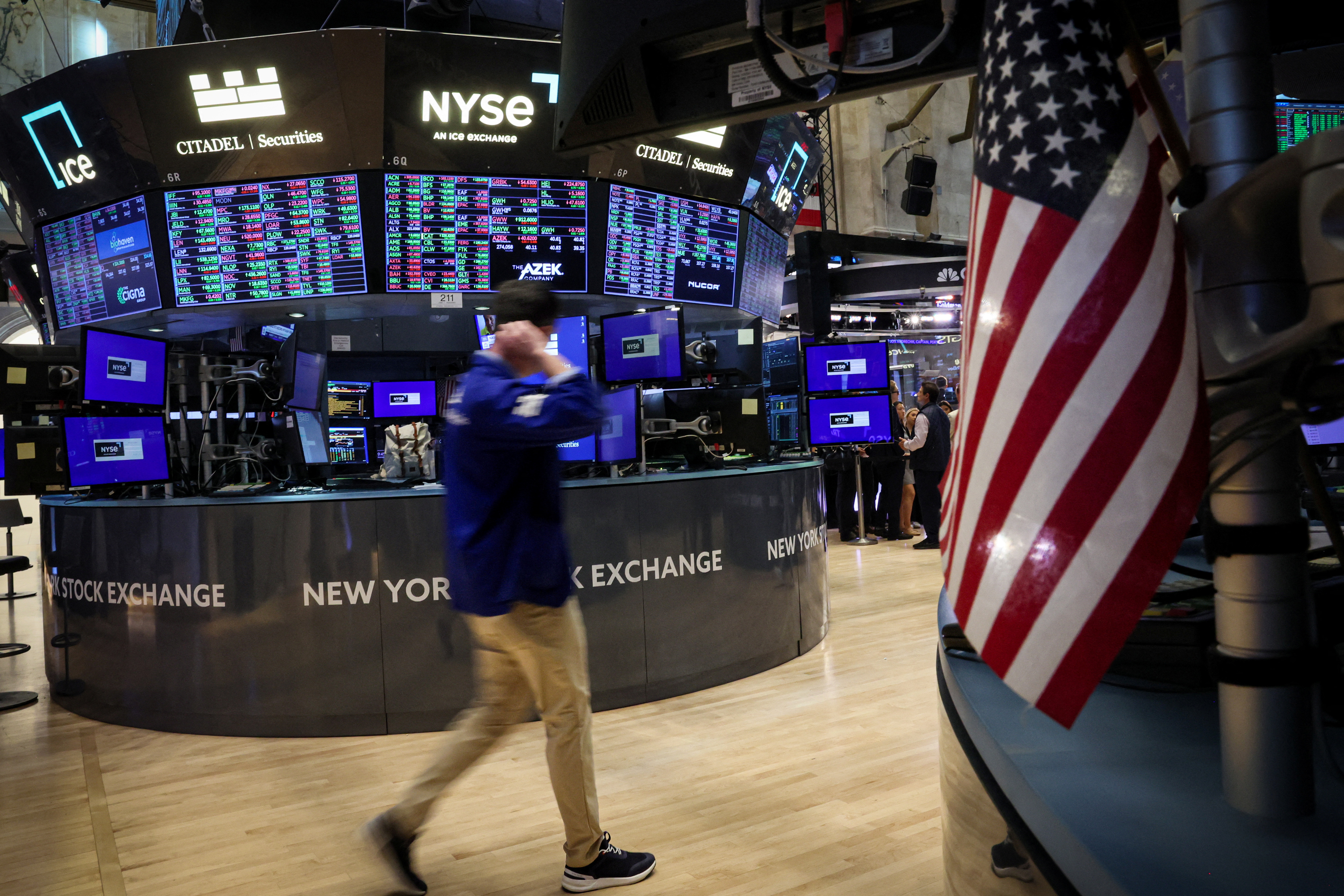The Dow Jones Industrial Average and S&P 500 chalked up record closing highs on Friday, with the Nasdaq also in positive territory, as markets were boosted by an earnings-driven jump in Netflix shares and broader gains across technology stocks.
All three major Wall Street benchmarks also comfortably secured a sixth straight weekly gain, their longest weekly winning streak since late 2023.
For the week, the S&P 500 gained 0.9%, the Nasdaq Composite advanced 0.8%, and the Dow Jones Industrial Average climbed 1%.
Shares of Netflix jumped 11.1% to a record closing high after the streaming giant topped Wall Street estimates for subscriber additions and said it expected continued growth through the end of the year.

Many of the so-called Magnificent Seven tech stocks, which have driven much of Wall Street’s rally this year, rose.
Apple gained 1.2% after data showed a sharp increase in new iPhone sales in China, while chip heavyweight Nvidia advanced 0.8% after BofA Global Research hiked its price target on the stock.
Netflix’s increase lifted the communication services sector 0.9%, making it the largest gainer among the 11 S&P 500 sectors, while information technology rose 0.5%.
“It’s kind of the ‘what’s not to like’ market,” said David Waddell, chief executive of Waddell & Associates, citing positive economic data, disinflation and upbeat earnings and forecasts from corporate America.
On Friday, the S&P 500 rose 23.20 points, or 0.40%, to 5,864.67 points, while the Nasdaq Composite advanced 115.94 points, or 0.63%, to 18,489.55. The Dow Jones Industrial Average gained 36.86 points, or 0.09%, at 43,275.91.
For the Dow, it was the fifth session in the last six that it had posted a record closing high. However, its gains on Friday were restrained by American Express, which lost 3.1% after the credit card company’s quarterly revenue missed estimates.

Financial companies have had a broadly positive earnings season so far. The S&P Banks index slipped 0.1% though, ending its string of wins at five.
The upbeat earnings of financial companies, and broadly positive economic data, have helped sustain the three main indexes’ grind upwards in recent days.
However, stretched valuations – the S&P 500 is trading at nearly 22 times forward earnings – along with high expectations for corporate results and potential volatility around the Nov. 5 U.S. presidential election, could leave stocks vulnerable to a pullback.
David Waddell of Waddell & Associates noted though that strong corporate earnings could override any political considerations or concerns about overdone valuations.
“We have gotten all we’re going to get from multiple expansions, so I think the path forward is completely reliant on earnings,” he said. “We’re priced for pretty-darn-good earnings, so it could create a disturbance if we don’t get them, but absent of recession, I think the bull is intact.”
Small-cap stocks have attracted investor buying in recent days, with both the Russell 2000 and S&P Small Cap 600 outperforming major indexes for the week. Both small-cap indexes were down slightly on Friday, though.
Energy was the only S&P sector which dropped. It fell 0.4%, as it was bogged down by lower oil prices and a 4.7% decline in after it posted earnings below expectations. This dragged down fellow oilfield services providers Baker Hughes and Halliburton by 1.3% and 2.1%, respectively.
The energy index was the week’s worst-performing sector, dropping 2.6%, as U.S. crude prices slumped 7% due to concerns over Chinese demand and the ongoing conflict in the Middle East.
CVS Health dropped 5.2% after it replaced CEO Karen Lynch with company veteran David Joyner and withdrew its 2024 profit forecast.
The news also weighed on other health insurers, including Cigna and Elevance Health. The latter, which fell 3.1%, closed at its lowest level in nearly 15 months.
Volume on U.S. exchanges was 10.62 billion shares, compared with the 11.56 billion average for the full session over the last 20 trading days.
Source: Reuters











Recent Comments